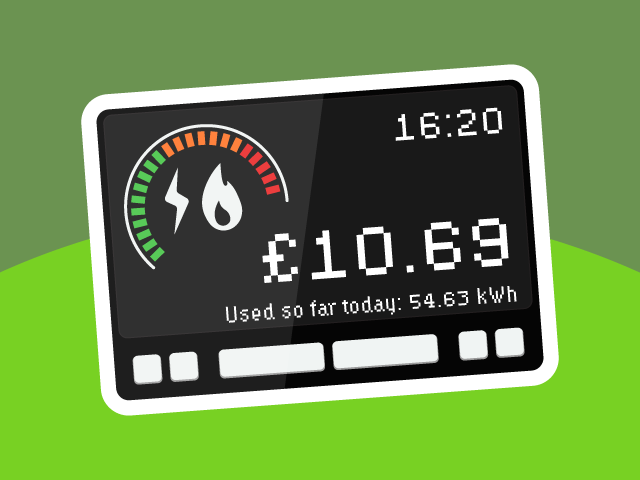Green Energy: A Sustainable Way Forward
Reading Time: 8 minutes
In recent years, people worldwide have become increasingly concerned about the impact of human activities on the environment. One of the most pressing issues facing us today is transitioning from fossil fuels to renewable energy sources. Green energy, generated from natural and renewable resources, offers an environmentally sustainable way forward. Green energy is one of the […]

In recent years, people worldwide have become increasingly concerned about the impact of human activities on the environment. One of the most pressing issues facing us today is transitioning from fossil fuels to renewable energy sources. Green energy, generated from natural and renewable resources, offers an environmentally sustainable way forward.
Green energy is one of the most thrown-about buzzwords in recent history. From introducing the concept in school lessons to becoming one of the main topics at the COP26 summit, our green energy providers have become consumer’s not-so-secret weapons against climate change.
With 137 countries pledging to reach net-zero emissions, more than 40 countries vowed to “phase down” coal. Although many countries have made policy commitments, only the UK and 11 others have passed legislation on net zero goals.
Live Global Historic Emission Calculator
The energy sector is the main contributor to greenhouse gases (GHG), which, as we know, fuels the climate change we're experiencing more and more each year.
Only 10 countries account for about 60% of global greenhouse gas emissions, while the 100 lowest emitters only add about 3%.
While we're not writing this intending to finger-point, it's important that we, as energy consumers, know the implications of our energy use and how crucial switching to green energy providers is. The live calculator created by Climate Watch shows the historic emission by sector and region. Go ahead and check how it's looking in your area. ⬇️
What is green energy and how do we get it
Green energy refers to energy produced from natural, renewable resources that have a minimal environmental impact. This includes sources like wind, solar, hydro, and bioenergy. Here’s a brief overview of these key sources:
- Wind Energy: Wind turbines convert kinetic energy from the wind into electrical energy. The UK, with its favorable wind conditions, especially offshore, has become a global leader in wind energy production.
- Solar Energy: Solar panels capture sunlight and convert it into electricity using photovoltaic cells. The increasing efficiency and decreasing cost of solar technology have made it a viable option even in the UK's variable climate.
- Hydropower: This involves generating electricity from the flow of water in rivers or dams. While the potential for large-scale hydropower in the UK is limited, small-scale hydro projects contribute significantly to the renewable energy mix.
- Bioenergy: This includes energy produced from organic materials such as plant and animal waste. It can be used to produce electricity, heat, or transportation fuels, and helps in managing waste while producing energy.
How to get clean energy?
We've established (with data) that energy-related industries that generate power have the highest emissions. But where does that leave you as a consumer? What is the first step from a consumer's point of view? Of course, changing your energy habits and taking a more waste-free approach is always sensible. Plenty of resources are available on the internet on how to save on your electric bill every month.
The first step might be easier than a change in habit, which can take months to achieve. Start easy: Switch your energy provider to a clean energy one. Not sure where to start? We've got you.
As the world grapples with the effects of climate change, the push towards renewable energy has gained unprecedented momentum. The UK, a pioneer in renewable energy initiatives, boasts a robust market for green energy suppliers. This article delves into the history of green energy, the mechanisms of its production, the significance of green energy suppliers, and the current offers available to consumers.
The history of green energy in the UK
The journey towards renewable energy in the UK began in earnest during the late 20th century. In response to growing environmental concerns and the oil crises of the 1970s, the UK government and private sector started exploring alternative energy sources. The establishment of the Non-Fossil Fuel Obligation (NFFO) in the early 1990s marked a significant step, mandating electricity suppliers to purchase a certain amount of energy from renewable sources.
The early 2000s saw the introduction of the Renewables Obligation, further incentivizing the generation of renewable energy. By the mid-2000s, technological advancements and government policies, including subsidies and tax incentives, had accelerated the growth of wind, solar, and other renewable energy sources. The Climate Change Act of 2008, which legally committed the UK to reducing greenhouse gas emissions, provided a significant boost to the renewable energy sector.
What is green energy and how do we get it
Green energy refers to energy produced from natural, renewable resources that have a minimal environmental impact. This includes sources like wind, solar, hydro, and bioenergy. Here’s a brief overview of these key sources:
- Wind Energy: Wind turbines convert kinetic energy from the wind into electrical energy. The UK, with its favorable wind conditions, especially offshore, has become a global leader in wind energy production.
- Solar Energy: Solar panels capture sunlight and convert it into electricity using photovoltaic cells. The increasing efficiency and decreasing cost of solar technology have made it a viable option even in the UK's variable climate.
- Hydropower: This involves generating electricity from the flow of water in rivers or dams. While the potential for large-scale hydropower in the UK is limited, small-scale hydro projects contribute significantly to the renewable energy mix.
- Bioenergy: This includes energy produced from organic materials such as plant and animal waste. It can be used to produce electricity, heat, or transportation fuels, and helps in managing waste while producing energy.
The importance of green energy suppliers
Green energy suppliers play a crucial role in the transition to a sustainable energy system. They are pivotal in:
- Reducing Carbon Emissions: By sourcing and supplying energy from renewable sources, green energy suppliers help reduce the carbon footprint associated with traditional fossil fuels.
- Promoting Sustainable Practices: These suppliers often engage in additional environmental initiatives such as carbon offsetting, supporting renewable energy projects, and promoting energy efficiency among consumers.
- Driving Innovation: The competition among green energy suppliers fosters innovation in energy technology and sustainable practices, making renewable energy more accessible and affordable.
- Supporting the Economy: The renewable energy sector creates jobs and stimulates economic growth through the development and maintenance of renewable energy infrastructure.
Current offers and how to switch
Switching to a green energy supplier can be a simple and impactful way to reduce your carbon footprint. Here are some current offers from leading green energy suppliers:
- Good Energy: Competitive tariffs with 100% renewable electricity and 10% green gas. Additional options for carbon offsetting and supporting local renewable projects.
- Octopus Energy: Flexible pricing plans, including a tracker tariff that follows wholesale prices, making it possible to save money while using green energy.
- Bulb: A single, competitive tariff that includes 100% renewable electricity and carbon-neutral gas. Easy switching process and no exit fees.
Leading green energy suppliers in the UK
The UK is home to one of the world's most progressive green energy providers, with costs at a fraction of the price you'd be getting in other parts of the world. Without much further ado, here are the top clean energy providers in the UK.
British Gas
British Gas is one of the largest green energy providers in the UK, offering renewable energy solutions to homes and businesses across the country. Their portfolio includes products such as solar panels, wind turbines, and biomass boilers. They also offer energy-efficient products and services to help customers reduce their energy consumption.
See British Gas Deals
E.ON
E.ON is one of the largest green energy providers in the world, and they have a strong commitment to sustainability. Their renewable energy offerings include wind and solar power, and they also offer smart home technology to help customers reduce their energy consumption.
See E.ONEnergy Deals
OVO Energy
OVO Energy is a green energy company that offers 100% renewable electricity and green gas. It is dedicated to making renewable energy accessible and affordable to all and offers a range of innovative services like EV charging and energy storage.
See OVO Energy Deals
Utilita
Utilita is one of the green energy providers that focuses on affordable renewable energy solutions for households across the UK. Their portfolio includes a range of green energy tariffs, which offer fixed prices for a set period of time. Their smart meters allow customers to monitor their energy usage in real-time. Utilita also offers a range of energy-efficient products and services to help customers reduce their energy consumption.
See Utilita Energy Deals
ScottishPower
ScottishPower is a green energy company that generates electricity from wind farms and hydroelectric plants. It also offers carbon-neutral gas and is committed to investing in research and development to advance renewable energy technology.
See ScottishPower Deals
Octopus Energy
Octopus Energy is a fast-growing green energy company that provides 100% renewable electricity. It is known for its competitive pricing, excellent customer service, and innovative smart energy solutions.
See Octopus Energy Deals
Shell Energy
Shell Energy, formerly First Utility, is a green energy provider offering 100% renewable electricity and gas. It also offers smart home technology, electric vehicle tariffs, and affordable solar panel installations.
See Shell Energy Deals
EDF Energy
EDF Energy is a major energy supplier in the UK, and they have pledged to become carbon-neutral by 2050. They generate electricity from a mix of renewable and traditional sources and offer a range of smart energy solutions to help customers reduce their carbon footprint.
See EDF Energy Deals
Utility Warehouse
Utility Warehouse is a green energy provider that offers a range of renewable energy solutions, including solar panels and wind turbines, to homes and businesses across the UK. Their tariffs are competitively priced, and they offer a range of energy-efficient products and services to help customers reduce their energy consumption.
See Utility Warehouse Deals
SSE
SSE is one of the largest energy suppliers in the UK. It generates electricity from a mix of renewable sources, including wind and hydroelectric power. SSE is committed to reducing its carbon footprint and promoting sustainable living.
See SSE Deals
Over to you
The world is moving towards green energy, the need of the hour. By adopting green energy, we can protect our planet and ensure a sustainable future for future generations. Not only does it bring about ecological benefits, but it also contributes positively to our economic growth.
Green energy is a fantastic alternative to traditional sources of energy. Renewable energy sources like solar energy are free from carbon emissions, easily accessible, and increasingly affordable. Why not switch today?


